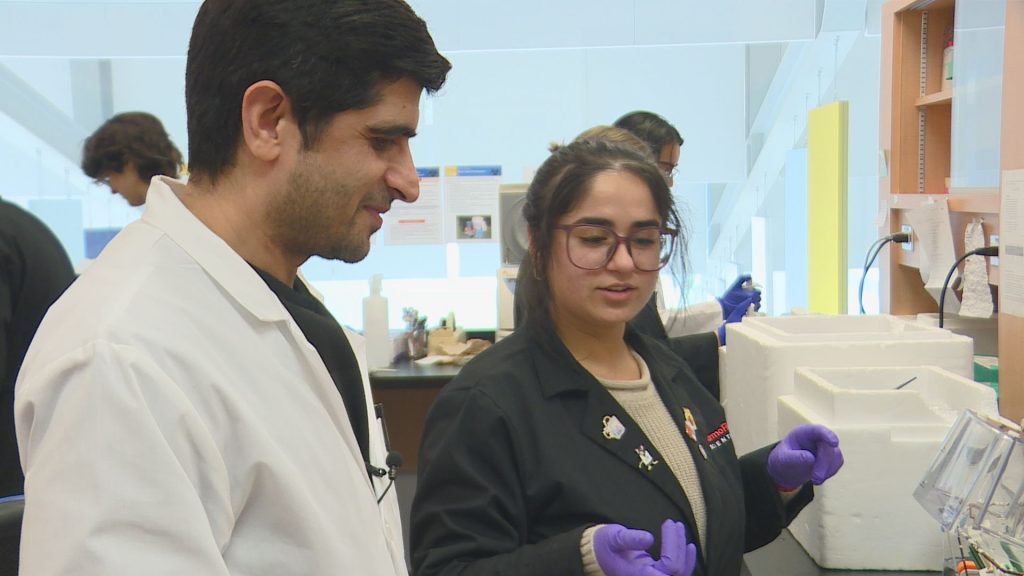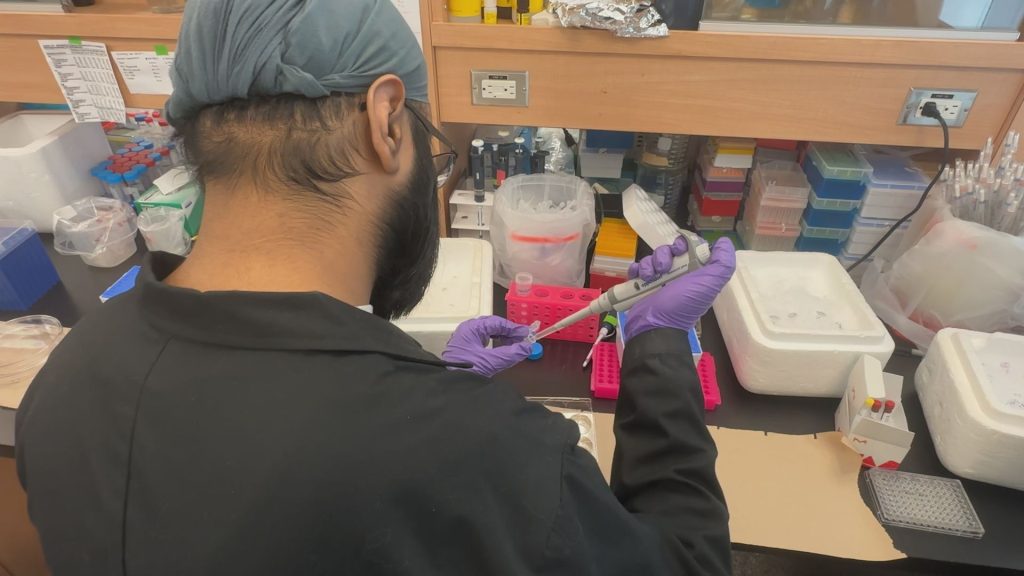University of Manitoba-led study improves understanding of fatal brain cancer

Posted February 12, 2025 5:56 pm.
Last Updated February 12, 2025 7:48 pm.
A new study from researchers at the University of Manitoba is shedding new light and providing new hope for those living with a rare and fatal brain cancer, the very disease that claimed the life of beloved Canadian Musician Gord Downie.
“This disease is so fatal that having any kind of therapeutic response in recurrent Glioblastoma I think is very encouraging,” said lead researcher Dr. Tanveer Sharif.
As of today, Dr. Sharif says that 95 per cent of patients with Glioblastoma die within five years of diagnosis, with most of those deaths stemming from a recurrent form of the disease, one that varies greatly from its predecessor.
“It becomes completely unresponsive to the therapies which were being used during the first stage to treat the primary disease,” he said Sharif, who is an associate professor and the Canadian Cancer Society’s Emerging Scholar.

According to the Mayo Clinic, Glioblastoma is “a type of cancer that starts as a growth of cells in the brain or spinal cord,” explaining it can grow quickly, destroying healthy tissue.
The study looked at the tumor cells from 10 patients and was eventually able to isolate the unique characteristics of the recurrent form of the disease. It’s a discovery that could open the door to prolonging the survival of patients through the use of a drug currently in clinical trials to treat Alzheimer’s.
Sherif remains optimistic that their work can provide hope to the 1,000 Canadians diagnosed with the disease each year, promising results already being found in lab settings.
“When we treat them with this drug, the survival of those mice is significantly enhanced,” he said.
“For this recurrent disease there is no therapeutic options, so I think any further knowledge can enhance our understanding of that disease, I think is crucial at this stage for the patient.








